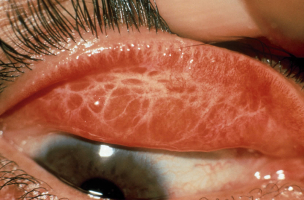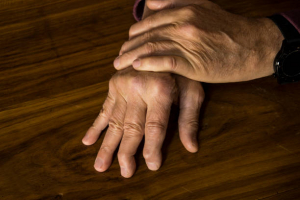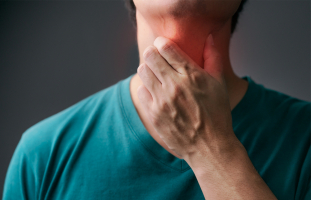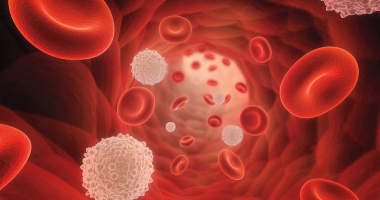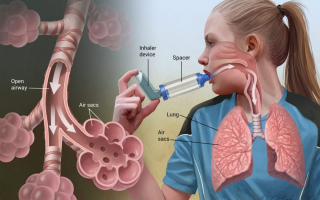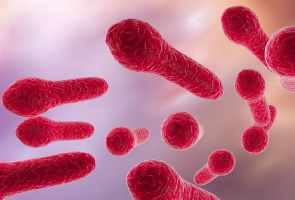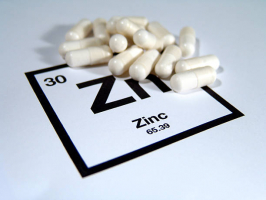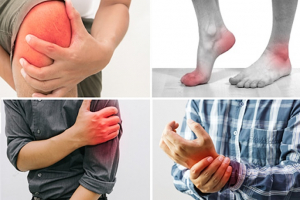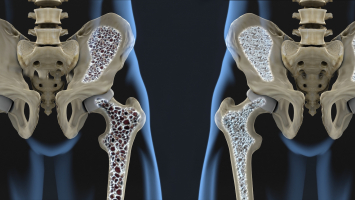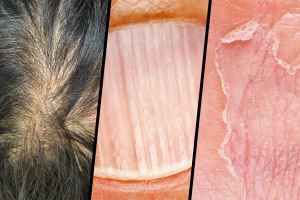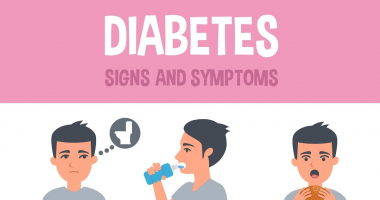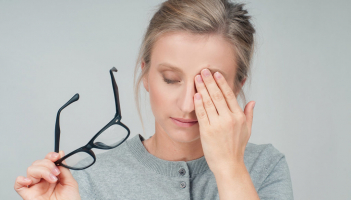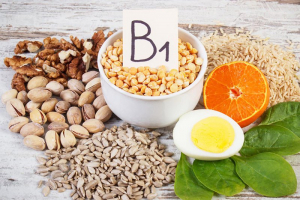Top 10 Signs and Symptoms of Hypothyroidism
Thyroid problems are rather prevalent. Around 12% of people will have aberrant thyroid function at some time in their life. The thyroid is a tiny, ... read more...butterfly-shaped gland that sits in front of your windpipe. You may feel your thyroid gland slipping under your fingertips if you lay your fingers on the sides of your Adam's apple and swallow. It produces thyroid hormone, which regulates the growth and metabolism of virtually every organ in your body. Hypothyroidism, sometimes known as "low thyroid", can result in a range of indications and symptoms. This article will assist you in recognizing and comprehending these impacts.
-
Feeling tired is one of the most prevalent symptoms of hypothyroidism. The thyroid hormone regulates energy balance and can impact whether you are ready to go or sleep. Hibernating animals, for example, have low thyroid levels leading up to their extended slumber. The thyroid hormone receives brain messages and coordinates cell functioning, depending on what else is going on in your body. Thyroid hormone excess causes nervousness and jitteriness. People with low thyroid, on the other hand, feel weary and sluggish.
Physical weariness and decreased activity were reported by 138 persons with hypothyroidism in one research. They also expressed decreased motivation and mental fatigue. Individuals with hypothyroidism feel tired despite sleeping more. In another study, 50% of those with hypothyroidism reported feeling consistently exhausted, whereas 42% of people with low thyroid hormone reported sleeping more than usual. Sleeping more than normal without a good reason might be an indication of hypothyroidism.

Feeling Tired 
Feeling Tired -
Another typical sign of hypothyroidism is unexpected weight gain. Low-thyroid people not only move less, but they also tell their livers, muscles, and adipose tissue to store calories. When thyroid levels are low, metabolism shifts into a different mode. Instead of burning calories for development and exercise, your basal metabolic rate, or the amount of energy you consume at rest, falls. As a result, your body tends to retain more dietary calories as fat. As a result, even if the quantity of calories consumed remains constant, low thyroid hormone levels might promote weight gain.
In fact, persons with newly diagnosed hypothyroidism gained an average of 15-30 pounds (7-14 kg) in the year after their diagnosis, according to one research. If you've been gaining weight, first assess whether other changes in your lifestyle may be to blame. Bring it up with your doctor if you're gaining weight despite a healthy diet and exercise routine. It might be a sign of something else going on.
Gaining Weight 
Gaining Weight -
Heat is produced as a consequence of calorie burning. Consider how heated you become when you exercise. This is due to the fact that you are burning calories. Even when you're sitting, you're burning some calories. In hypothyroidism, however, your basal metabolic rate lowers, limiting the amount of heat you create. Furthermore, the thyroid hormone raises the temperature of brown fat, a form of fat that creates heat. Brown fat is essential for keeping the body warm in cold climes, but hypothyroidism hinders it from doing so.
That is why low thyroid hormone levels make you feel cooler than others. Around 40% of people with hypothyroidism are more susceptible to colds than usual. If you've always desired the room to be warmer than the individuals you live and work with, this might be genetic. However, if you've been feeling cooler than usual lately, it might be an indication of hypothyroidism.

Feeling Cold 
Feeling Cold -
Thyroid hormone deficiency shifts the metabolic switch to catabolism, which occurs when the body breaks down bodily tissues such as muscle for energy. Muscle strength declines during catabolism, perhaps contributing to feelings of weakness. Aching can result from the breakdown of muscular tissue. Everyone experiences weakness from time to time. People with hypothyroidism, on the other hand, are twice as likely as healthy people to feel weaker than usual. Furthermore, 34% of people with hypothyroidism have muscular cramps in the absence of recent exertion.
In one trial of 35 hypothyroid patients, supplementing low levels of thyroid hormone with a synthetic thyroid hormone called levothyroxine enhanced muscular strength and lowered aches and pains when compared to no therapy. Another study found that individuals having thyroid replacement saw a 25% increase in their sense of physical well-being. Weakness and pains are common after vigorous activities. However, new, and especially increasing, weakness or discomfort is an excellent cause to consult your doctor.

Weakness and Aches in Muscles and Joints 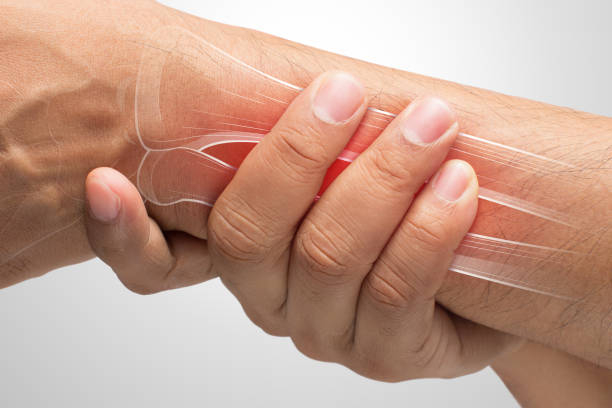
Weakness and Aches in Muscles and Joints -
The thyroid hormone regulates hair follicles, as it does other cells. Hair follicles are particularly vulnerable to low thyroid levels than other tissues because they include stem cells with a short lifetime and fast turnover. Hair follicles cease renewing when thyroid hormone levels are low, resulting in hair loss. When the thyroid problem is corrected, this usually improves. In one research, around 25-30% of people who saw a specialist for hair loss were shown to have insufficient thyroid hormone. This jumped to 40% among people over the age of 40.
Another study found that hypothyroidism can cause hair coarsening in up to 10% of those with low thyroid hormone. Consider hypothyroidism if you notice sudden changes in the pace or pattern of your hair loss, especially if it becomes spotty or coarser. Other hormonal issues might also result in sudden hair loss. Your doctor can help you determine whether your hair loss is cause for concern.
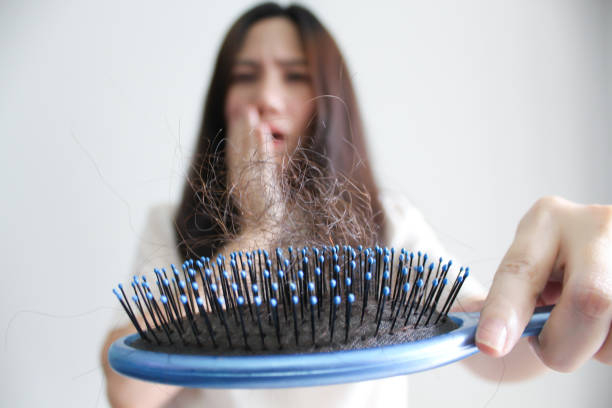
Hair Loss 
Hair Loss -
Skin cells, like hair follicles, have a high turnover rate. As a result, they are vulnerable to losing thyroid hormone-induced growth signals. The skin may take longer to recover if the regular cycle of skin regeneration is disrupted. This signifies that the skin's outer layer has been around longer, collecting damage. It may also take longer for dead skin to slough, resulting in flaky, dry skin. According to one research, 74% of people with hypothyroidism have dry skin. However, 50% of individuals with normal thyroid levels also had dry skin for other reasons, making it difficult to determine if thyroid issues were the cause.
Furthermore, the study found that 50% of hypothyroid patients indicated that their skin had gotten worse in the previous year. Skin changes that cannot be attributed to allergies such as hay fever or new goods might be a more realistic indicator of thyroid difficulties. Finally, autoimmune illness can induce hypothyroidism. This can cause swelling and redness on the skin, a condition known as myxedema. Myxedema is more associated with thyroid issues than with other types of dry skin.
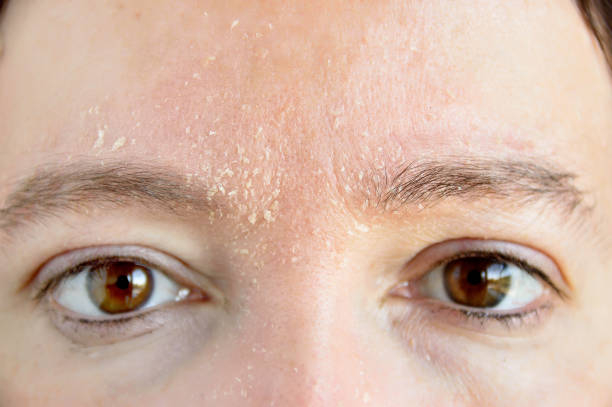
Itchy and Dry Skin 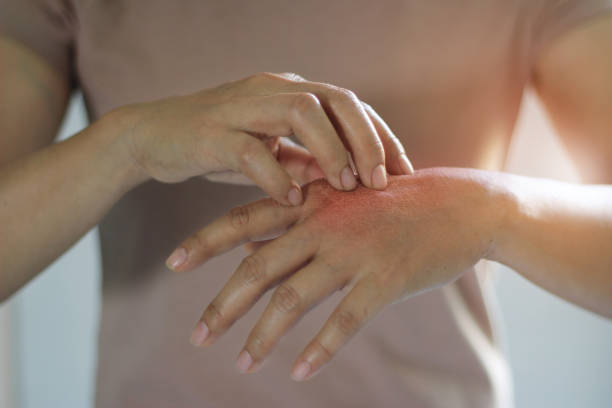
Itchy and Dry Skin -
Depression has been connected to hypothyroidism. The reasons for this are unknown, however, it might be a mental manifestation of a general decline in energy and health. Depression is reported by 64% of women and 57% of men with hypothyroidism. Anxiety affects roughly the same proportion of men and women... Thyroid hormone supplementation decreased depression in people with moderate hypothyroidism compared to a placebo in one trial.
Another research on young women with moderate hypothyroidism found higher sadness, which was linked to worse satisfaction with their sex life. Postpartum hormone swings are also a prevalent cause of hypothyroidism, which may contribute to postpartum depression. Feeling sad is an excellent cause to consult a doctor or therapist. They may be able to assist you in coping, whether your depression is caused by thyroid issues or something else.

Feeling Down or Depressed 
Feeling Down or Depressed -
Many hypothyroid patients complain of mental "fogginess" and difficulty concentrating. The manner this mental fogginess manifests itself differs from individual to person. In one research, 22% of low-thyroid people reported having greater difficulties with ordinary math, 36% reported thinking slower than normal, and 39% reported having worse memory.
Another research of 14 men and women with untreated hypothyroidism found that they had trouble recalling verbal cues. The reasons for this are not entirely known, although memory problems improve when low thyroid hormone is treated. Difficulties with memory or attention can occur in anybody, but if they are sudden or severe, they may indicate hypothyroidism.
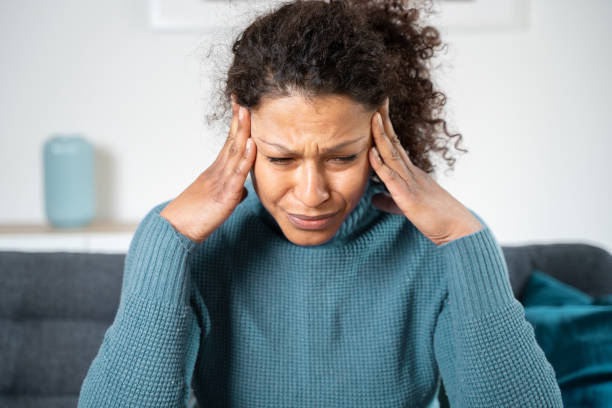
Trouble Concentrating or Remembering 
Trouble Concentrating or Remembering -
Your colon is slowed by low thyroid levels. Constipation affects 17% of persons with low thyroid hormone levels, compared to 10% of people with normal thyroid levels, according to one research. In this study, 20% of hypothyroid persons reported that their constipation was growing worse, compared to just 6% of normal-thyroid participants. While constipation is a typical complaint in hypothyroid individuals, it is unusual for constipation to be the sole or most severe symptom.
Before you worry about your thyroid, consider these natural laxatives if you have constipation but otherwise feel well. If they don't work, your constipation worsens, you go several days without passing a stool, or you have stomach discomfort or vomiting, consult a doctor.

Constipation 
Constipation -
Hypothyroidism is associated with both irregular and excessive menstrual flow. According to one study, around 40% of women with low thyroid hormone had increased monthly irregularity or excessive bleeding in the previous year, compared to 26% of women with normal thyroid levels. Another study found that 30% of hypothyroid women had irregular and heavy menstruation. These women were identified with hypothyroidism after being checked for other symptoms.
Thyroid hormone interacts with other hormones that regulate the menstrual cycle, and high amounts of it can interfere with their signals. The thyroid hormone also has an effect on the ovaries and uterus. Aside from hypothyroidism, there are numerous other conditions that might produce heavy or irregular periods. If you have irregular or heavy periods that interfere with your daily life, consult a gynecologist before worrying about your thyroid.

Heavy or Irregular Periods 
Heavy or Irregular Periods













